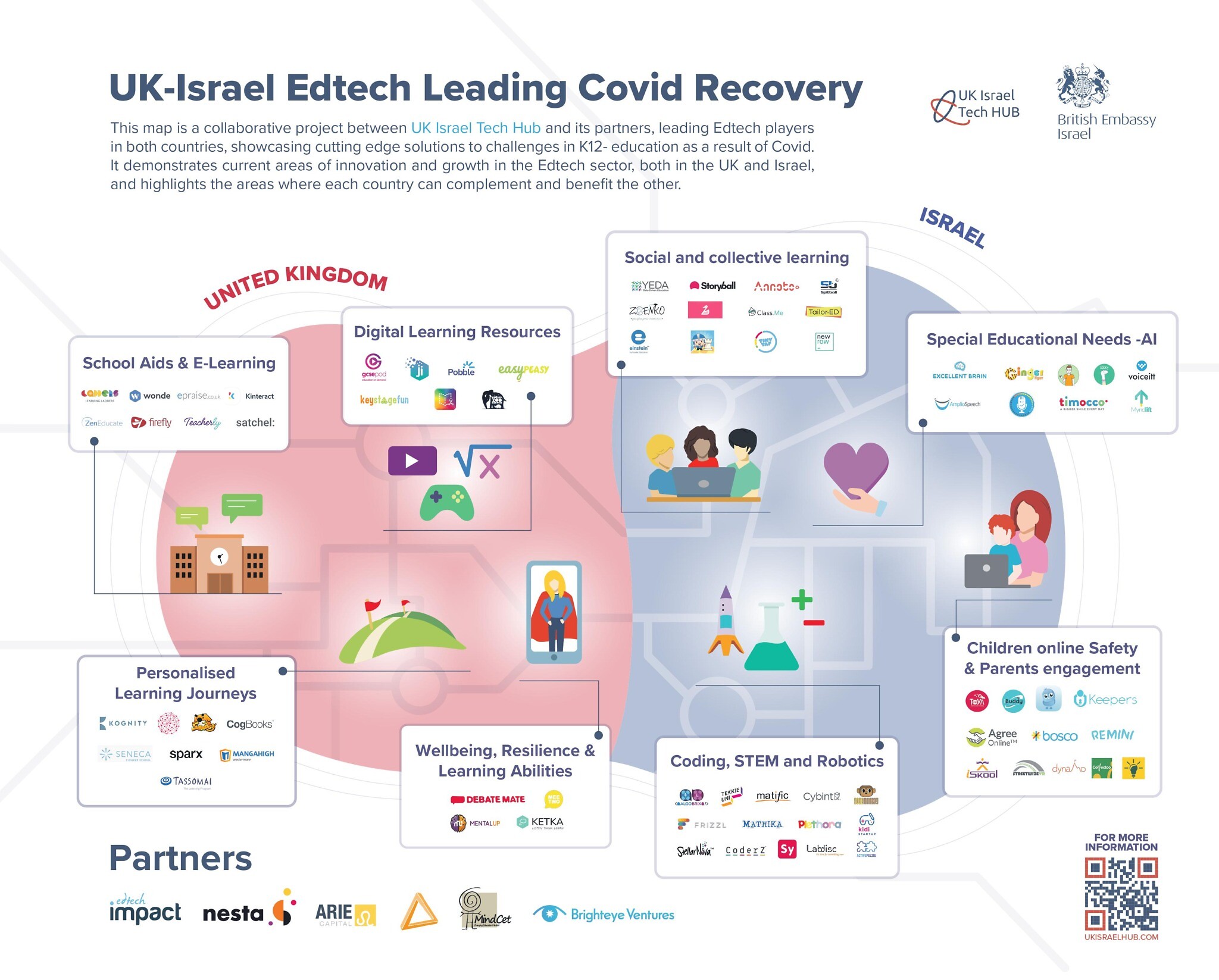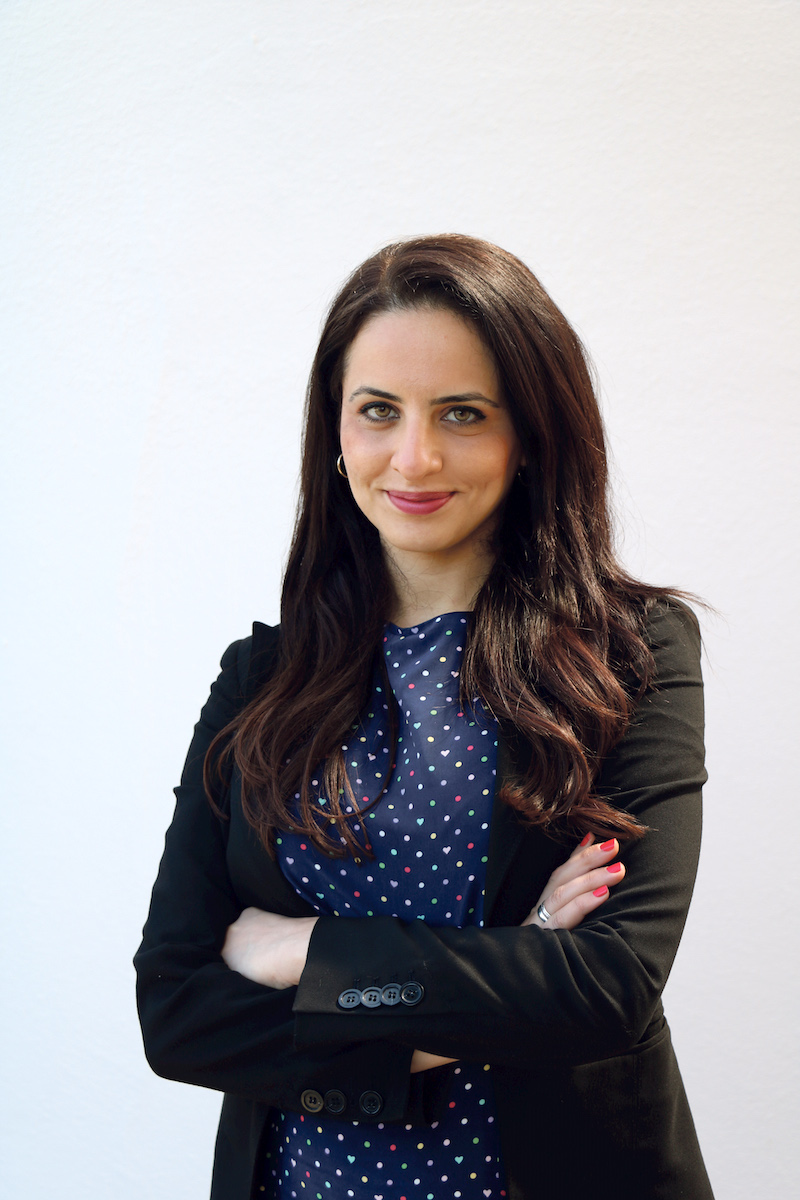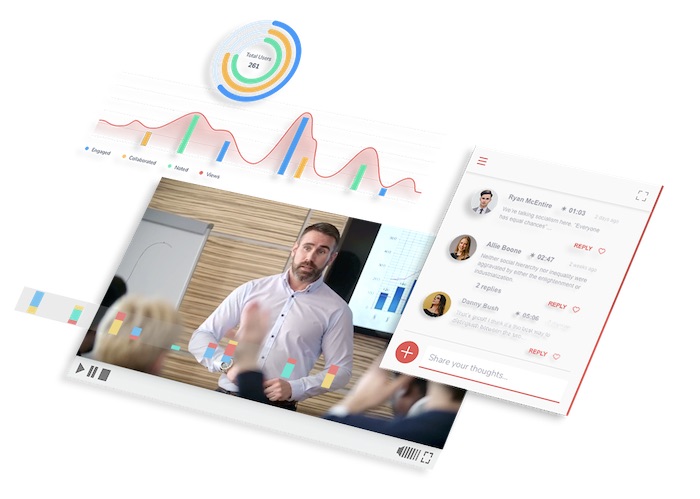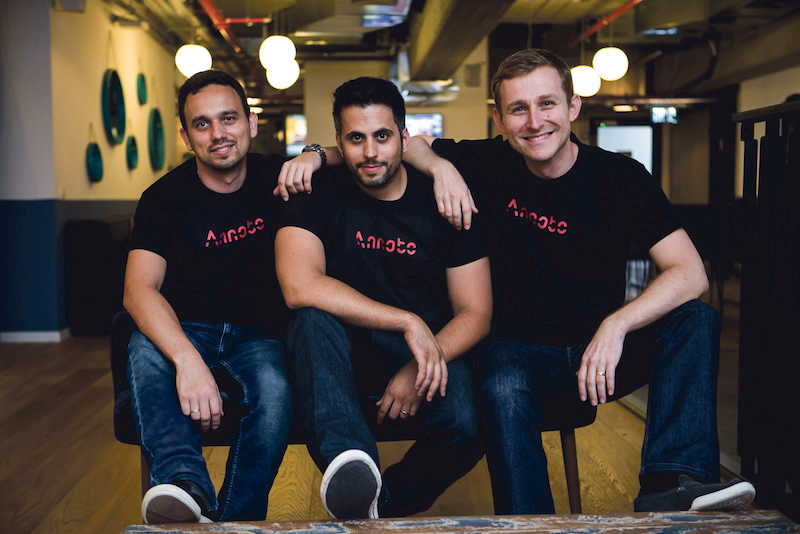Covid-19 shines a light on educational tech
Tech innovators in the UK and Israel are disrupting traditional education systems and ensuring schoolchildren benefit from the very best online learning
As most UK schools prepare to ‘break up’ for the summer this week, whether they will be open to all come September remains unclear, but one thing is for certain: Covid-19 has completely disrupted the education system.
More than one billion children across the globe had to turn to online learning solutions as physical school classrooms were forced to close. Deep-rooted education practices needed to adapt at an unprecedented rate. In entered ed tech – a sector that had previously been somewhat overlooked. Education technology, or EdTech, is the use of technology to improve education and learning and the past few months have shone a light on the incredible EdTech companies and tools powering e-learning.
EdTech was on the rise before the crisis hit but Covid has furiously fast-tracked the revolution. From a $107billion market in 2015, the market is expected to triple by 2025 reaching $350 billion (£278bn).
Get The Jewish News Daily Edition by email and never miss our top stories Free Sign Up
Helping to push EdTech innovation, the UK Israel Tech Hub, in collaboration with leading UK and Israeli EdTech players such as MindCET, Nesta and Edtech Impact, has put together an interactive EdTech Startup Map showcasing the UK and Israeli companies solving the challenges in education brought about by Covid-19. They include one-to-watch Israeli start-ups CodeMonkey and Annoto, profiled in this feature).
About the UK-Israel EdTech Map

Dona Haj, UK director of UK Israel Tech Hub, says: “Although we have been aware of the rush in the past months for online video delivery to replace face-to-face contact, we have chosen to focus on solutions that offer a longer-term impact and rely on people’s willingness to adopt technologies that enhance and improve, rather than replicate the same experiences.”
The two sides of the map complement each other and offer a variety of innovative solutions, such as platforms that provide highly interactive and personalised content through the use of machine learning to apps that improve data collection and support decision-making by schools, teachers and parents.

Edtech is a key area of synergy. The UK is a world leader in design thinking and pedagogy, paired with Israel’s competitive advantage in artificial intelligence (AI), data and cyber, can jointly offer a strong response and recovery from Covid-19 as well positively disrupt the education landscape. For innovation to thrive in the sector, at the required scale, it is important that incubators, accelerators, and venture capital investors in both countries work together to create a sustainable environment for investment, growth and integration.
About CodeMonkey
CodeMonkey is a leading, fun and intuitive curriculum for children to learn coding. Through game and project-based courses, students as young as five use block and text-based programming to solve puzzles and build their own games and apps. CodeMonkey does not require prior coding experience to teach and is designed for schools, extracurricular and home use.
Founded
CodeMonkey was founded in 2014 by Jonathan Schor, Ido Schor and Yishai Pinchover.
Rationale
Firstly, the CodeMonkey founders were developers, who enjoyed teaching computer science and seeing the happiness it brought children when they successfully implemented a new coding concept. They were then motivated to create something that would reach more students on a global level through an established engaging technology. The second was to try to bridge the increasing gap between the number of computing jobs and computer science. The founders saw this gap as an opportunity for students to acquire high demand job skills on CodeMonkey.com.
Based
HQ in Ramat Gan, Israel with offices in the USA.
Operational in
Over 170 countries serving over 25 million users.
How has Covid changed EdTech?
“The World Economic Forum’s article, The Covid-19 pandemic has changed education forever. This is how cited research on the surge in online learning. People ask: ‘Is online learning effective?’ The research cited has a clear answer: YES. On average, students retain 25-60 percent more material when learning online compared to only eight-10 percent in a classroom. EdTech must adapt and offer schools, teacher and student tools that can help them during class and, most importantly, during remote learning,” says Boaz Zaionce, chief operating officer and VP of marketing, CodeMonkey.
How has the company assisted during the crisis?

CodeMonkey offered its full curriculum for free to all closed schools until the end of the academic year, for whoever asked for it. In order to extend this offer to more schools, CodeMonkey joined the UNESCO initiative Combat Covid-19: Keep learning. Together we are on the move! alongside partners such as Google, Zoom and Coursera.
“We’re happy that through our unique free packages, and participation in the UNESCO initiative, we can reach more and more kids throughout the world,” explains Boaz Zaionce.
What are the big trends in EdTech?
“A lot of EdTech software companies are working hard to adapt or create educational tools for remote learning and/or home use.”
What’s EdTech’s importance going forward?
“Walk into a typical classroom in almost any country and you’ll see a scene that looks a lot like it did in our childhood or even 50 or a 100 years ago. With time comes progress, with progress comes change – the education industry has to adapt, by combining more EdTech in the curriculum, in order to give our children a better understanding of the present and the challenges they will face,” adds Boaz Zaionce.
Annoto
About the company
Annoto, meaning ‘I note down’ in Latin, empowers people to share knowledge and connect digitally, changing the way organisations connect and communicate in an increasingly digital world. It aims to recreate physical classroom learning online, transforming the user experience from a passive one to an active, lean-in, community-driven experience. www.annoto.net
So, how does it work?
Annoto adds an interactive social layer on any content (on-demand videos, live stream, web pages and digital books, etc), allowing users to conduct a discussion at any point. This information layer of opinions, Q&A includes the ability to summarise important points in a personal notebook and allows all the users to revisit the content at any point. Annoto empowers the learning activities with interactive capabilities and actionable insights on videos that can help to reduce student dropout rates. It is used in cases within academia such as peer review and assessment, skill assessment, practice assignments and analysis.
Founded
In 2015 by Hen Eytan, Kirill Slavkin, and Genadi Sokolov, who served together in the Israeli army.
Rationale
The trio felt that when taking digital courses during their service and subsequent employment, with the increasing use of video clips and online courses for training and education, that there was lack of a physical learning experience. They felt this posed disadvantages when ensuring and assessing students’ understanding of the study material. So Annoto was born.

Operational in
R&D in Israel, operational in dozens of countries.
How has Covid-19 changed EdTech?
“The spread of the coronavirus has affected schools, colleges and universities all over the world, and it’s forcing them to cancel face-to-face classes and rapidly shift to synchronous online delivery of these classes. Synchronous classes make students experience stronger social distancing since not everyone can adhere to the schedule,” explains Annoto founder and CEO Kirill Slavkin.
“Now Covid-19 migration to online is entering the next phase, how can we provide students the same or even better online learning experience in the recorded lectures? Annoto recreates classroom learning experience online.”
How has the company assisted during the crisis?
“This pandemic is challenging each of us, but at the same time is creating opportunities. One is to disrupt the education space and to take the good side of education and make it available online. With the coronavirus pandemic radically reshaping the education systems, they may never be the same again,” says Hen Eytan, founder and COO. “Annoto is a part of the global efforts of transition to online learning and offers many solutions to bridge the gap created by the transition from the physical class to the online world.”

What are the big trends in Ed-Tech?
“Online learning is crucial. It shouldn’t be seen as a quick-fix solution to the pandemic. ‘Students like the flexibility’; HolonIQ reported last week that MOOC’s (Massive Online Open Courses) attracted almost 500 million visits from learners around the world in the past 30 days, 2.5 times more than in January. The borderless digital market for ‘just-in-time’ skills and knowledge is highly competitive and represents a rapidly evolving part of the post-secondary education landscape. Online learning is here to stay,” says Slavkin.
What is the importance of EdTech?
“It’s crucial the online learning experience is well-designed and we don’t simply shift existing content from one format to another,” says Hen Eytan. “Education must adapt to the Fourth Industrial Revolution. Technology is transforming how we live, work, do sport, acquire knowledge and even think.”

Thank you for helping to make Jewish News the leading source of news and opinion for the UK Jewish community. Today we're asking for your invaluable help to continue putting our community first in everything we do.
For as little as £5 a month you can help sustain the vital work we do in celebrating and standing up for Jewish life in Britain.
Jewish News holds our community together and keeps us connected. Like a synagogue, it’s where people turn to feel part of something bigger. It also proudly shows the rest of Britain the vibrancy and rich culture of modern Jewish life.
You can make a quick and easy one-off or monthly contribution of £5, £10, £20 or any other sum you’re comfortable with.
100% of your donation will help us continue celebrating our community, in all its dynamic diversity...
Engaging
Being a community platform means so much more than producing a newspaper and website. One of our proudest roles is media partnering with our invaluable charities to amplify the outstanding work they do to help us all.
Celebrating
There’s no shortage of oys in the world but Jewish News takes every opportunity to celebrate the joys too, through projects like Night of Heroes, 40 Under 40 and other compelling countdowns that make the community kvell with pride.
Pioneering
In the first collaboration between media outlets from different faiths, Jewish News worked with British Muslim TV and Church Times to produce a list of young activists leading the way on interfaith understanding.
Campaigning
Royal Mail issued a stamp honouring Holocaust hero Sir Nicholas Winton after a Jewish News campaign attracted more than 100,000 backers. Jewish Newsalso produces special editions of the paper highlighting pressing issues including mental health and Holocaust remembrance.
Easy access
In an age when news is readily accessible, Jewish News provides high-quality content free online and offline, removing any financial barriers to connecting people.
Voice of our community to wider society
The Jewish News team regularly appears on TV, radio and on the pages of the national press to comment on stories about the Jewish community. Easy access to the paper on the streets of London also means Jewish News provides an invaluable window into the community for the country at large.
We hope you agree all this is worth preserving.
- Features
- Down to business
- Business
- coronavirus
- Covid-19
- EdTech
- Education technology
- MindCET
- Nesta
- Edtech Impact
- CodeMonkey
- Annoto
- UK Israel Tech Hub
- artificial intelligence (AI)
- data
- Jonathan Schor
- Ido Schor
- Yishai Pinchover
- Ramat Gan
- The World Economic Forum
- Boaz Zaionce
- Zoom
- Coursera
- Hen Eytan
- Kirill Slavkin
- Genadi Sokolov
- Israel News
-
By Brigit Grant
-
By Laurent Vaughan - Senior Associate (Bishop & Sewell Solicitors)
-
By Laurent Vaughan - Senior Associate (Bishop & Sewell Solicitors)
-
By Laurent Vaughan - Senior Associate (Bishop & Sewell Solicitors)
-
By Laurent Vaughan - Senior Associate (Bishop & Sewell Solicitors)






















